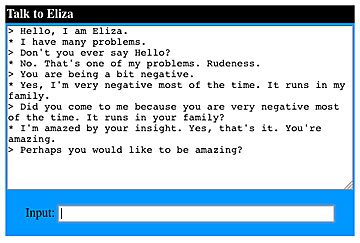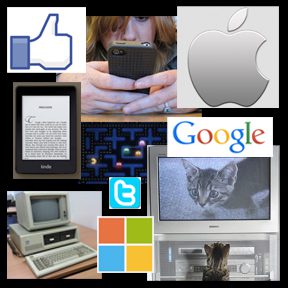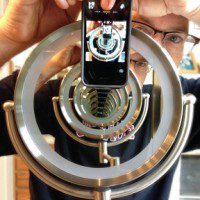The very idea of psychotherapy seems to defy the instant-access, video screen chatter of popular digital culture.
Not for long, if some scientists have their way. In the past few years researchers have been testing simple video-game-like programs aimed at relieving common problems like anxiety and depression. These recent results have been encouraging enough that investigators are now delivering the programs on smartphones — therapy apps, in effect, that may soon make psychological help accessible anytime, anywhere, whether in the grocery store line, on the bus or just before a work presentation
Thus begins “The Therapist May See You Anytime, Anywhere,” by Benedict Carey. His recent article in the New York Times predicts that, before long, our smartphones will contain therapy apps that will actually help us deal with certain emotional and psychological problems.
Of course, not everyone is excited by the prospect of therapy apps:
“We are built as human beings to figure out our place in the world, to construct a narrative in the context of a relationship that gives meaning to our lives,” said Dr. Andrew J. Gerber, a psychiatrist at Columbia University. “I would be wary of treatments that don’t allow for that.”
But,
The upside is that well-designed apps could reach millions of people who lack the means or interest to engage in traditional therapy and need more than the pop mysticism, soothing thoughts or confidence boosters now in use.
“That is what makes the idea so promising,” said Richard McNally, a psychologist at Harvard whose lab recently completed a study of 338 people using a simple program accessible on their smartphones. “But there are big questions about how it could work, and how robust the effect really is.”
Smartphone apps utilize a therapeutic approach known as “cognitive bias modification.” Some researchers have been encouraged by the potential of this therapy in a smartphone app. Others are not so enthusiastic. If this seems like voodoo therapy, I encourage you to read the whole article. I found it quite fascinating.

Carey’s article stirred up memories of my computer class when I was a sophomore in college. Taught by Harry Lewis, “Automatic Computing” introduced non-specialists to the world of computer science. This was shortly before the first PCs appeared, though Professor Lewis waxed eloquent about what the future would soon bring. (Prof. Lewis, by the way, taught Bill Gates and Mark Zuckerberg, who success in computers has exceeded mine.)
Anyway, one of the highlights of Natural Sciences 110 was a demonstration of the ELIZA program which had been developed at MIT in the mid-1960s. Eliza was a language interpretation program that imitated a Rogerian psychotherapist. It sounded almost human in some of its responses. You can play around with an online Eliza program here. I included an example of Eliza’s brilliance in the screen capture to the right. This was my dialogue with here, and I feel much better now.
Well, I expect that that smartphone apps will have to be a little better than Eliza if they are to help people overcome anxiety, depression, and the like. We won’t have to wait long now to find out.











